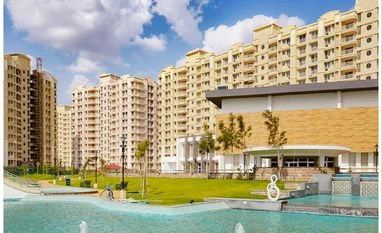The premium housing market has gained momentum post the Covid-19 pandemic. A recent study by real estate consultancy CBRE South Asia found a 130 per cent year-on-year (Y-o-Y) increase in the sale of properties priced at Rs. 4 crore and above between January and June 2023.
Around 6,900 such units were sold during the first half of this calendar year compared to 3,000 units during the same period last year.
“Premium-grade real estate is witnessing a surge across key metros, owing to interest from end-users, including those looking for a premium-grade second home, as well as investors,” says Ankita Sood, head of research, Housing.com, PropTiger.com and Makaan.com.
According to Ashwin Chadha, chief executive officer, India Sotheby’s International Realty: “This segment has seen a big surge in demand since 2021, a trend that continues well into 2023. This secular upswing should last for a while.”
Desire for lifestyle upgrade
One reason for the rise in demand for premium properties is the desire of high net-worth individuals (HNI), ultra-high net-worth individuals (UHNI) and expatriates to invest in lifestyle homes amid rising wealth.
“Factors like pent-up demand, stable prices, rising wealth levels, and a quest for enhanced living standards have driven the segment’s robust sales over the past few years,” says Sood.
He adds that a strong dollar has also fuelled interest from non-resident Indian (NRI) investors.
After the pandemic, demand for premium-grade properties was also driven by the desire for more space.
Key growth markets
Activity in the premium segment, however, remains concentrated in a few large cities.
“The key markets are the Mumbai Metropolitan Region (MMR), Delhi-National Capital Region (NCR) and Bengaluru,” says Vivek Rathi, director, research, Knight Frank India.
The CBRE study found large jumps in the sale of high-end properties in Hyderabad (14-fold) and Pune (6-fold), albeit on a lower base.
Premium housing projects are also being launched in exotic places.
“Many such projects are being launched in destinations like Alibaug and several hill destinations where people want to invest in a second home,” says Chadha.
Favourable price action
Experts believe prices will remain firm in the premium-grade segment.
“This segment has seen higher appreciation than the general market. Until demand-supply dynamics remain favourable and consumer desire for such properties remains strong, we can expect strong price appreciation,” says Rathi.
Real estate cycles usually span five to seven years.
Says Sood: “The revival in the sale of these properties post-pandemic could extend for several more years if India remains on a high growth path.”
Suitable investment avenue?
With demand and prices set to remain robust, the premium housing segment is emerging as a good investment option too.
“We anticipate demand as well as average prices to rise in the future. Rental demand has also increased for these homes, leading to an increase in rental rates as well,” says Anuj Puri, chairman, ANAROCK Group.
Adds Rathi: “Customers’ price sensitivity tends to be low in this segment. Therefore, prices can go up faster in this segment compared to the mainstream markets.”
However, it is end-users who tend to purchase most of the premium properties. “Most such units are bought for self-use,” says Sood.
Points to consider
Before purchasing a premium-grade property, conduct due diligence. The bulk of the property’s value should arise from its premier location.
“The key features of a premium-grade property are its location, facilities and amenities, and also the developer’s brand equity. Make sure the location has long-term appeal and demand from HNIs,” says Puri.
When purchasing for investment purposes, study the demand-supply dynamic of the locality.
“Look at inventory levels in this segment within that area. If supply is low and demand is strong, it creates favourable conditions for both price appreciation and rental income. High supply levels can dampen growth,” says Puri.
Sood suggests evaluating the legal status of the property. “Investors also need to factor in the capital gains tax they will incur when reselling the property to quantify their returns accurately,” he adds.
Unlock 30+ premium stories daily hand-picked by our editors, across devices on browser and app.
Pick your 5 favourite companies, get a daily email with all news updates on them.
Full access to our intuitive epaper - clip, save, share articles from any device; newspaper archives from 2006.
Preferential invites to Business Standard events.
Curated newsletters on markets, personal finance, policy & politics, start-ups, technology, and more.
)